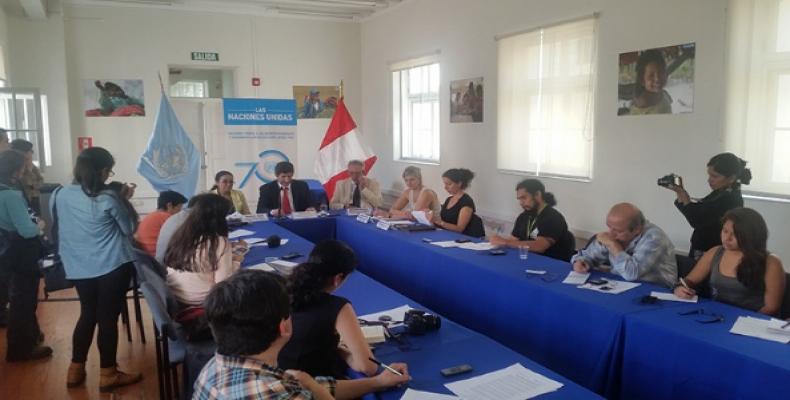Lima, June 12 (teleSUR-RHC)-- A United Nations commission investigating forced disappearances in Peru presented its results on Wednesday. Its main findings is that while serious systematic human rights violations in Peru are no longer a serious problem, there is a great deal of work to be done to achieve justice for the atrocities that occurred during the internal armed conflict of the 1980s and 1990s.
The U.N. report shows the wounds from the country's disappearances are still open. The state is tackling each case one at a time. But there is no national plan to deal with mass graves and the identification of bodies, nor are there official estimates of how many people were involuntarily taken away. At the current rate, it will take over 100 years to identify all the bodies.
Ariel Dulitzky, president of the U.N. Working Group on Enforced or Involuntary Disappearances, said at a press conference, “There is no agreement on the shared history, and reconciliation seems very far away. There hasn't been a process of national reconciliation.” “Peru's educational system has a central role to play in this process and it has to be developed with inclusion, participation, and information for all victims," Dulitzky concluded.
One example of the legacy of enforced disappearances in Peru is the still-unresolved case of Ernesto Castillo. The sociology student from the Catholic university was out conducting surveys in 1990 about the effects of the Fujimori government’s economic policies, when he was captured and disappeared by state officials.
After dedicating 18 years to the case, Castillo’s parents were able to see the four officers who detained their son put behind bars. However, three of the four individuals were released after less than six years in prison. Castillo’s father Cromwell quit his job to dedicate himself to seeking justice for his son. “We have exclusively dedicated our lives to this and we have achieved what we have achieved,” he told teleSUR English.
“If what is happening to a case like ours that has been considered emblematic in the area of state-sponsored forced disappearances, just imagine the situation of the families of the more than 15,000 disappeared people who have not even been able to start a judicial process," Cromwell Castillo said, adding that he will not rest until finding his son's remains.


